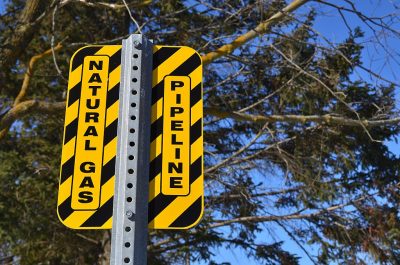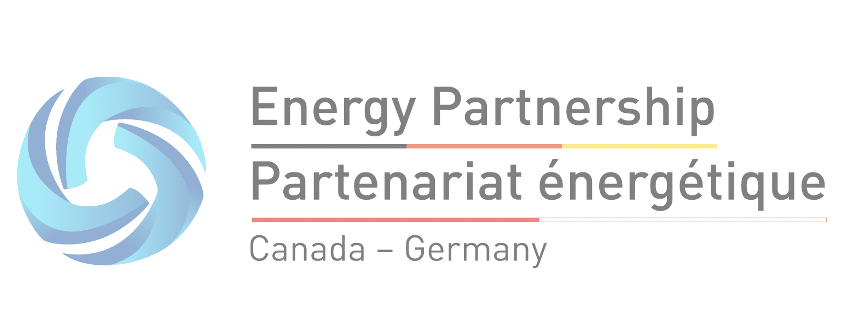Amidst Ukraine Crisis, Canada Is Quietly Trying to Boost Gas Exports to EU, Documents Show
One east coast climate activist says she’s ‘horrified.’

All Global Research articles can be read in 51 languages by activating the “Translate Website” drop down menu on the top banner of our home page (Desktop version).
To receive Global Research’s Daily Newsletter (selected articles), click here.
Visit and follow us on Instagram at @globalresearch_crg and Twitter at @crglobalization.
***
Senior Canadian officials are working with an Alberta company to open up new markets for natural gas in Germany, according to documents seen by DeSmog, contradicting a federal minister who says the Ukraine crisis can’t be solved by exporting more fossil fuels.
Alfred Sorensen, the President and CEO of Calgary-based Pieridae Energy, pitched the idea of exporting gas from Canada’s east coast to Europe during a recent meeting whose participants included officials in Germany’s Federal Ministry of Economics and Technology.
The two-hour virtual meeting, which took place on January 26 as tensions between Russia and Ukraine were quickly rising, included senior officials in Natural Resources Canada as well as provincial government officials from Alberta and Newfoundland and Labrador. The meeting was organized under the banner of the Canada – Germany Energy Partnership, established in March 2021 during the Berlin Energy Transition Dialogue to foster “clean energy” trade opportunities focused on “hydrogen, critical minerals and liquefied natural gas.” While the launch of the energy partnership garnered plenty of media coverage, this late-January 2022 meeting was held quietly.
Sorensen’s pitch came during a section of the meeting entitled “Canadian LNG – value proposition, projects and potential trade with Germany.” He was joined by representatives from the industry group LNG Newfoundland and Labrador, as well as a pro-gas organization known as the First Nations Major Projects Coalition.
Natural Resources Canada didn’t respond to a media request from DeSmog about the meeting.
The federal department recently told iPolitics that the “natural energy allies” of Canada and Germany are working together “building a low-emissions energy future with a view to achieving carbon neutrality by 2050.”
Image on the right: Screenshot of the logo of the Canada-Germany Energy Partnership from the Jan. 26, 2022 meeting agenda.

Prime Minister Justin Trudeau said in late February that
“we know that Russia is a significant source of natural gas and oil for European partners. And one of the things that we’ve been doing over the past number of weeks is ensuring that there are alternatives to Russia.”
But efforts to accelerate Canada’s gas exports undermine other statements being made by top federal policymakers.
“The solution to global energy problems is not to increase our dependency on fossil fuels,” Canada’s environmental minister Steve Guilbeault told the National Observer.
“Climate change will not go away, and if we’re thinking we can solve the [Ukraine] crisis by exacerbating another one, those people who think that are clearly mistaken,” he said.
Pieridae Energy walked away last summer from plans to build a $13 billion liquefied natural gas facility in Goldboro, Nova Scotia, due to financing problems which the company said made the project “impractical”.
The Halifax Examiner reported at the time that “the Goldboro LNG scheme has collapsed.”
But as tensions and rumors gave way to a full-scale Russian invasion of Ukraine, Pieridae’s CEO claimed that he was receiving inquiries from the federal government about how to revive the project.
“We certainly have been speaking with different departments in how we might be able to find a near-term solution versus a much longer-term solution,” Sorensen told BNN Bloomberg in a story that appeared the day after the invasion began. “I do believe that the project still has substantial merit in reducing the amount of dependence on Russian gas and this is one of the principal reasons I think we’ve seen a revived interest.”
Pieridae didn’t respond to queries from DeSmog.
“Frankly, I’m horrified that the response to this moment is to produce more fossil fuels,” Robin Tress, a climate campaigner with the Atlantic office of the advocacy group Council of Canadians, told DeSmog.
The Goldboro project as originally proposed would have added nearly four million tons of greenhouse gas emissions to the atmosphere each year, according to calculations from Dalhousie University professor Larry Hughes. That would have made Nova Scotia’s climate targets unachievable.
Pieridae says it is now proposing a scaled-back version of the facility that would cost $2 billion and produce roughly 400,000 tons of greenhouse gases annually. It says that the project is consistent with “a net-zero emissions pathway forward,” referring to the goal supported by most countries of eliminating or neutralizing all global emissions by 2050.
But a report last year from the International Energy Agency said that in order to achieve the climate-stabilizing goal of net-zero there must be “no investment in new fossil fuel supply projects.”
A recent report from the Intergovernmental Panel on Climate Change warned that without drastic cuts to global emissions more than three billion people could face catastrophic threats. However, the IPCC report was largely drowned out by media coverage of Russia invading Ukraine.
“The answer to this crisis [in Europe] is not more gas,” Jim Emberger, spokesperson for the New Brunswick Anti-Shale Gas Alliance, told DeSmog. “It’s to go to renewables as soon as possible in a much bigger way than we’ve done before. In the end, more gas means more dependency on somebody.”
*
Note to readers: Please click the share buttons above or below. Follow us on Instagram, @globalresearch_crg and Twitter at @crglobalization. Forward this article to your email lists. Crosspost on your blog site, internet forums, etc.
Geoff Dembicki is an investigative climate journalist based in New York City. He is author of The Petroleum Papers and Are We Screwed?
Featured image: A natural gas pipeline sign near Toronto. Credit: Raysonho (CC0 1.0)

